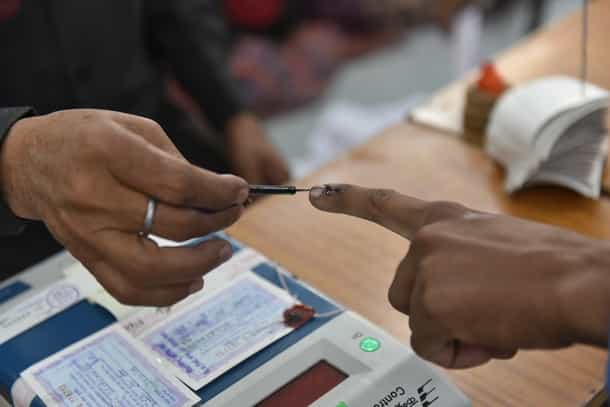Bill on simultaneous polls is set to be introduced by the Union government during the ongoing Winter Session of Parliament. The government aims to implement synchronized elections for the Lok Sabha, State Assemblies, and local bodies. Once introduced, the Bills will likely be referred to a joint committee comprising members from both the Lok Sabha and the Rajya Sabha for extensive deliberations.
Government’s Push For Simultaneous Polls
The Union government is acting on recommendations by a high-level committee led by former President Ram Nath Kovind. The committee proposed phased implementation of synchronized elections to ensure efficiency in governance. While the Union Cabinet has accepted these recommendations, formal approval of the draft Bills is still pending.
The proposal includes constitutional amendments to facilitate simultaneous elections. Key provisions such as Article 82A will be amended to add clauses defining the “appointed date” for synchronized elections and aligning the terms of legislative bodies. Additional changes to Article 83(2) will introduce clauses addressing the duration and dissolution of the Lok Sabha.

The Role Of Joint Committees
The government has emphasized the importance of consulting all stakeholders before proceeding. It plans to engage State Assembly Speakers through parliamentary committees to gather diverse perspectives. Referring the Bills to a joint committee underscores the government’s intent to foster consensus among various political factions.
While the first constitutional amendment Bill requires no state ratification, a second amendment Bill will need approval from at least 50% of State Assemblies. This Bill focuses on coordinating electoral rolls between the Election Commission and State Election Commissions for local body elections.
Proposed Changes To Union Territory Laws
In addition to constitutional amendments, a third Bill targets laws governing Union Territories with legislative Assemblies, including Puducherry, Delhi, and Jammu and Kashmir. This legislation seeks to align their election cycles with other State Assemblies and the Lok Sabha, ensuring consistency across all legislative bodies.
Historical Context Of Simultaneous Polls
India initially followed a synchronized electoral system. After independence, the first general elections in 1951-52 witnessed simultaneous polls for the Lok Sabha and State Assemblies. This trend continued until 1967, when political instability led to the premature dissolution of several Assemblies, disrupting the alignment.
Over time, the frequent need for separate elections has imposed significant logistical and financial burdens on the Election Commission. The proposed Bills aim to restore synchronization, bringing the electoral process back to its original framework.

Challenges And Criticisms
Despite the potential benefits, the proposal for simultaneous polls has faced criticism. Opponents argue that it could undermine federalism by centralizing power and limiting the autonomy of State Assemblies. Legal experts have also raised concerns about the feasibility of aligning election schedules across diverse states with varying political climates.
Additionally, achieving consensus among State Assemblies poses a significant challenge. Political differences and regional priorities may hinder the ratification of the second constitutional amendment Bill, delaying the implementation process.
Potential Benefits Of Simultaneous Elections
Proponents of simultaneous polls highlight several advantages:
- Reduced Costs: Synchronizing elections will cut down administrative expenses and deployment of security forces.
- Efficient Governance: Avoiding frequent election cycles will reduce disruptions in policymaking and governance.
- Voter Convenience: Holding elections simultaneously simplifies the voting process for citizens, fostering higher participation.
- Streamlined Administration: A uniform election schedule allows for better planning and resource allocation.
Next Steps For The Government
The introduction of the Bills during the Winter Session signals the government’s commitment to advancing this reform. By engaging parliamentary committees and consulting stakeholders, the government aims to address concerns and build a robust framework for implementation.
If the Bills gain traction in Parliament, India may witness a significant shift in its electoral landscape, reviving the synchronized polling system that marked its early years of democracy. The coming weeks will be crucial in determining whether this ambitious proposal will receive the necessary political support.


